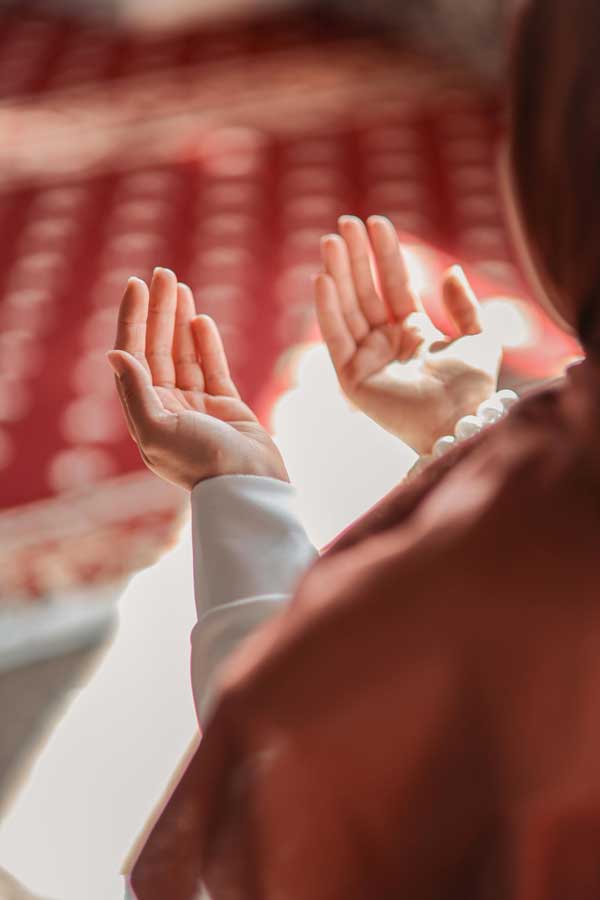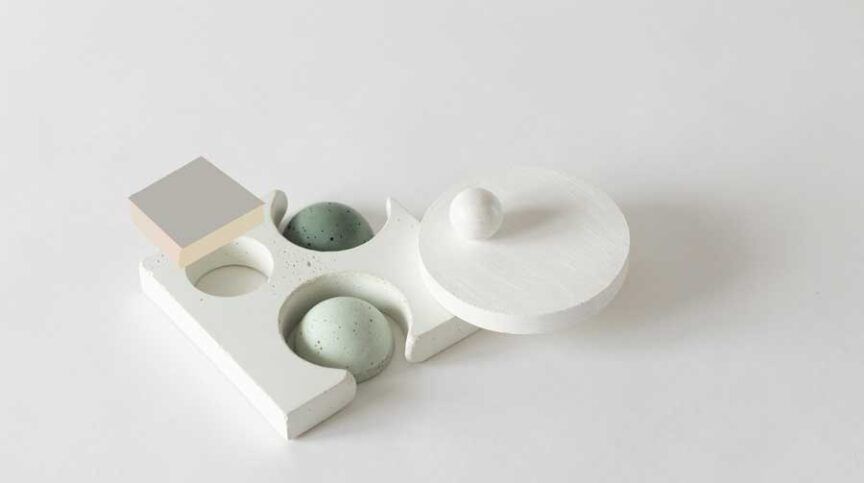In a world that often feels complicated with algorithms, hustle culture, and constant notifications, it may be easy to forget that worship was never meant to be a chore. At its core, worship is simple; it is consistently and sincerely remembering the One who created us, showing Him gratitude, and being present.
Somewhere along the way, many of us start thinking worship only “counts” if it looks a certain way – long duas, perfect tajweed, standing in prayer for hours – and while those practices are beautiful, the basics of worship teach us that Allah (SWT) doesn’t ask for perfection; He asks for consistency and sincerity.
It begins with intentions
The Prophet (peace be upon him) taught us, “Actions are judged by intentions.” Which means the smallest act, like pouring a glass of water for a loved one, cooking dinner for your family, or even getting dressed, can be worship if your heart connects it to love for Allah (SWT).
Back to basics of worship means checking in with our intentions and continually purifying them before rushing into any action. We can ask ourselves: “Is this for the dunya, or is it for the One who owns it?”
Anchored by prayer
 Sometimes we complicate prayer by judging it with a measuring stick that Allah (SWT) didn’t prescribe for us; maybe even halting if it doesn’t look and feel like we think it should. If we’re not performing it with khushoo – complete submission and concentration – we might question whether it’s being accepted. Perhaps performing prayer at a time when our faith is wavering, we may feel unworthy of salaat, as if Allah (SWT) will be unhappy if we are standing before Him. No matter our circumstance, we must strive to stand in salaat before Allah five times each day and declare “I am here.”
Sometimes we complicate prayer by judging it with a measuring stick that Allah (SWT) didn’t prescribe for us; maybe even halting if it doesn’t look and feel like we think it should. If we’re not performing it with khushoo – complete submission and concentration – we might question whether it’s being accepted. Perhaps performing prayer at a time when our faith is wavering, we may feel unworthy of salaat, as if Allah (SWT) will be unhappy if we are standing before Him. No matter our circumstance, we must strive to stand in salaat before Allah five times each day and declare “I am here.”
No matter how you feel, you should always pray through it, even when the connection isn’t as strong as you wished it would. I often liken salaat to exercising, which so many people loathe. It may be difficult to begin, however, once you finish a workout, you are rewarded with a dose of serotonin and endorphins that make you believe everything is better, and that’s exactly what prayer does – physically, emotionally, mentally, and spiritually.
Allah says, “Establish regular prayer: for prayer restrains from shameful and unjust deeds; and remembrance of Allah is the greatest thing in life without doubt.” (Quran 29:45)
Back to basics means doing what’s required of us, even when we’re distracted. It means making wudu slowly, letting the water reset us, and giving our few minutes in prayer to the One who deserves all of our hours.
Dhikr isn’t small
We may underestimate the power of saying “Subhanallah, alhamdulillah, Allahu akbar” throughout the day; yet these are small but mighty utterances with big rewards. The tongue may move lightly, but the weight of those words can fill the scales. And the best part about this type of dhikr is that it is innumerable and easy to recite throughout your day.
While worship is something you should strive to complete with concentration, it comes in many different forms and some forms are allowed while doing other acts. Dhikr is one of them. Allah (SWT) promises that “If you remember me, I will remember you.” (Quran 2:152) And also, “Verily in the remembrance of Allah, do hearts find ease.” (Quran 13:28) Isn’t ease in this life what we all want?
Back to basics means filling the quiet moments – the drive to and from work, the endless loads of laundry, the walks – all with remembrance of Him. Do so without audience, make it just you and Him, in hopes that the whispers are building our palace in jannah.
Become close to Quran
 In the West, we are so hard-wired to seek therapy from professionals, engage with self-help books and podcasts for guidance, and find so many worldly ways to ease our daily stresses, yet often the Quran sits on our bookshelves collecting dust, waiting for its turn to give real healing. Even one verse a day is better than none at all.
In the West, we are so hard-wired to seek therapy from professionals, engage with self-help books and podcasts for guidance, and find so many worldly ways to ease our daily stresses, yet often the Quran sits on our bookshelves collecting dust, waiting for its turn to give real healing. Even one verse a day is better than none at all.
After all, a single line of Allah’s words, read with sincerity and reflection, carries light that no other source can offer, not even close.
Back to basics means treating the Quran not as a seasonal Ramadan habit, but as daily nourishment, like a daily cup of coffee or plate of food. It may sound silly, but it is irreplaceable.
Worship in the mundane
 I remember attending nikkah and talaq classes as a child and learning that something as small as cooking dinner can be worship – as previously mentioned. That took a while to sink in. I used to think, “How can something you do for your family every single day be a means of worship?” It seemed like an easy ticket, until it was my responsibility and I better understood Allah’s grace.
I remember attending nikkah and talaq classes as a child and learning that something as small as cooking dinner can be worship – as previously mentioned. That took a while to sink in. I used to think, “How can something you do for your family every single day be a means of worship?” It seemed like an easy ticket, until it was my responsibility and I better understood Allah’s grace.
Working with honesty can be worship. Studying, parenting, building a business – all can be acts of worship when tied to serving Allah’s creation. And when you begin anything with the intention to do it for the sake of Allah (SWT), and use the guidelines that He prescribed, you can quite actually make everyday life a wonderful form of ibaadah.
Reflection
To realize this, maybe we don’t need a new routine, a new method, or a new app. Maybe what we need is to go back to the simplicity of Allah’s advice. Patterning our lives and behaviors after our beloved Prophet Muhammad (peace be upon him).
We need to return to the simplicity of sincere intentions, five daily prayers, quiet constant dhikr, Quran in our hands, charity, and hearts that see worship in ordinary, everyday actions. It needn’t be this long, drawn out, perfected presentation. Although my intention isn’t to reduce ibaadah down to being ordinary, because worshipping Allah SWT) in any way is nothing short of extraordinary.
But worship was never meant to be far from us; it was always meant to be the center. The small acts, the big intentions, and no matter what you do in between, as long as Allah (SWT) is the goal and it’s done for His sake, we pray that it will weigh on your scale as worship and good deeds.
May Allah (SWT) call us closer to Him and keep Him in the center of everything we do.




